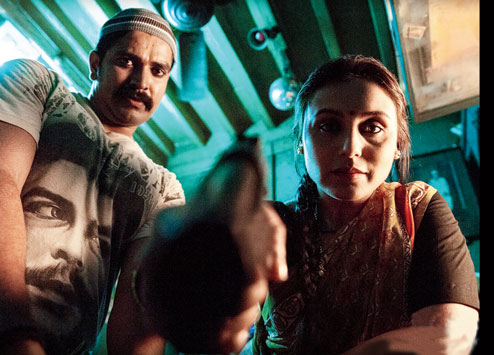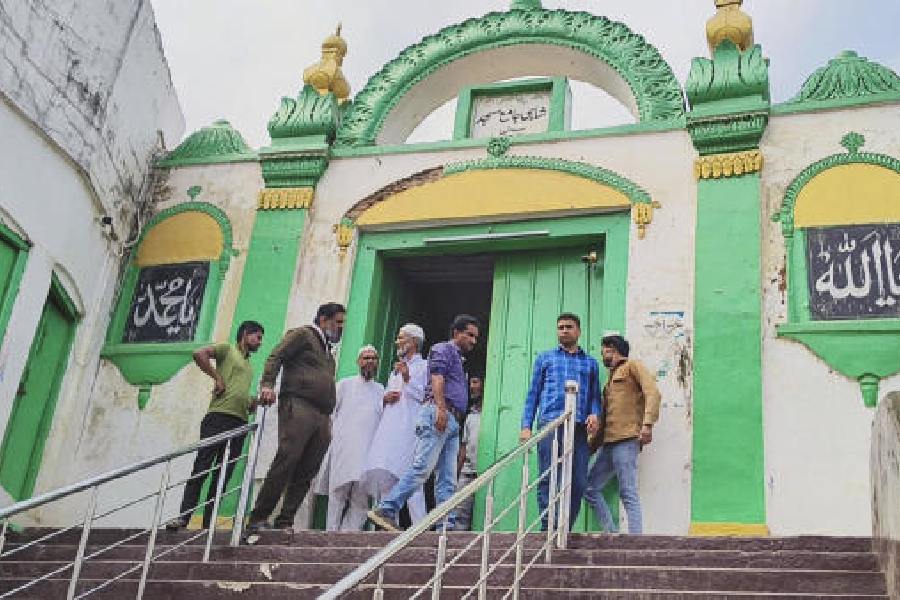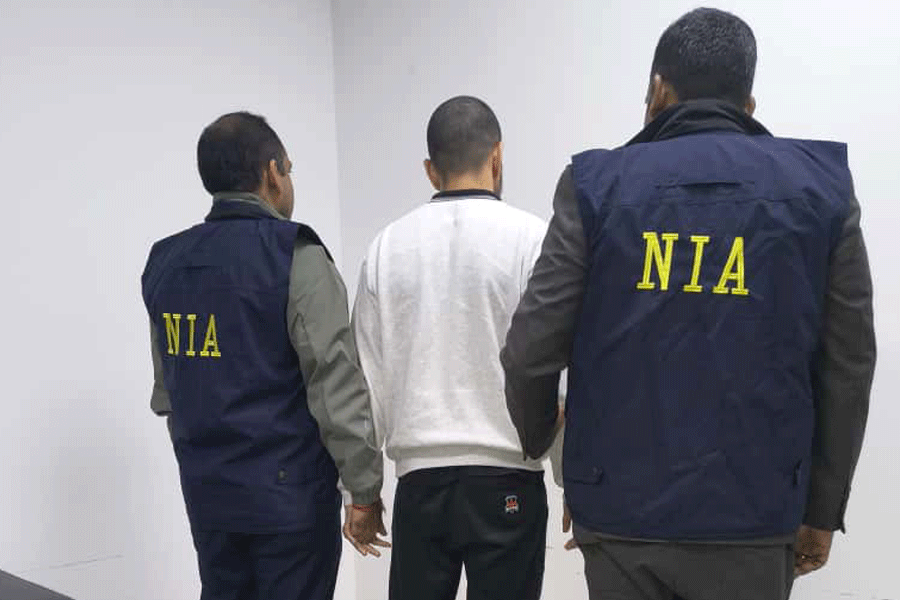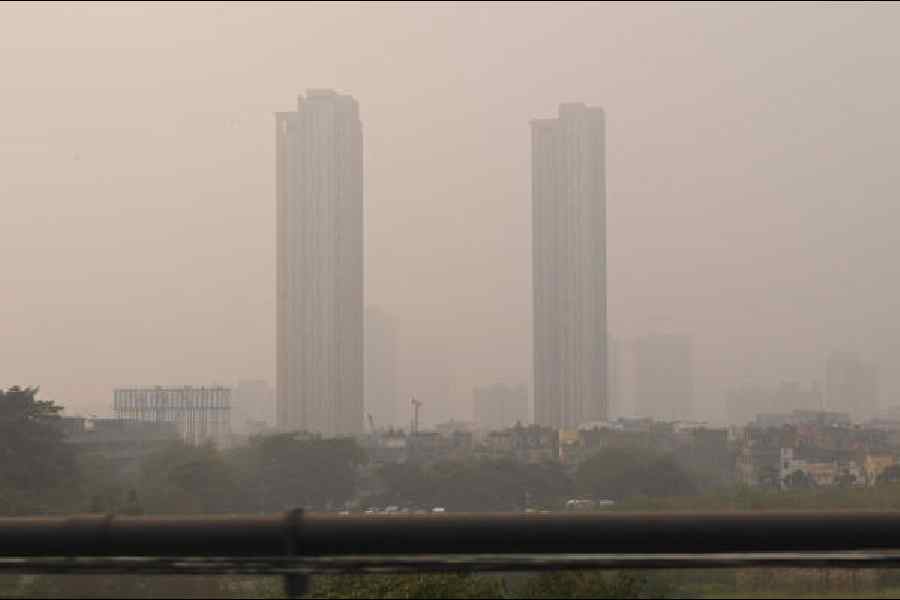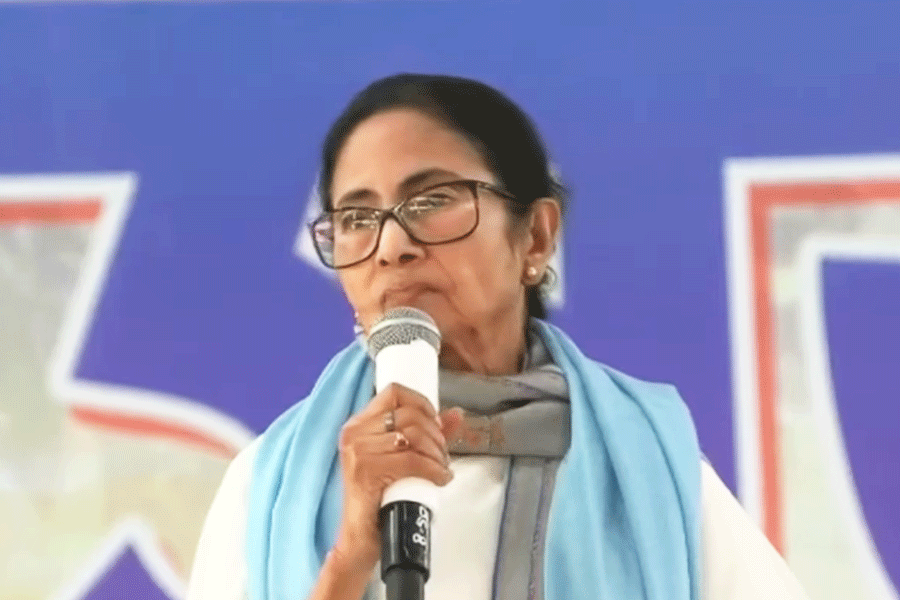 |
 |
Ruchira Gupta,
founder, Apne Aap Women Worldwide, a grassroots movement to end human trafficking
A young flower-seller disappears from an orphanage. Other children, in the past, have vanished too. This time, however, the missing girl has someone who looks for her. The friend is Rani Mukerji or Shivani Shivaji Roy, a persistent police officer in the movie Mardaani. She investigates, interrogates, raids, jumps onto moving buses, boxes, kicks, spits, and finds the girl. In the process, she unravels a powerful sex-trafficking ring.
Scene after scene relentlessly reveals the entire process of trafficking. Young girls from orphanages are recruited with the promise of a better education or a job, herded together in lodges, beaten, abused and drugged till their spirits are completely broken, displayed in front of traffickers who select them for Dubai, Delhi, Bangkok, New York, Brazil, trotted out in parties for businessmen and politicians, used as drug mules, and shot dead if they fall ill. Traffickers are revealed in their bestiality as men who force girls to be paraded naked, tie them up in gunnysacks, rape them, and callously order their death.
Nothing was exaggerated or distorted. I had hit upon such scenes with horror again and again. First as a journalist and then as an activist. In my own Emmy-winning investigation, for the documentary The Selling of Innocents, 20 years ago, I had exposed this very same prostitution system from the villages of Nepal to the brothels of Mumbai.
Little girls between the ages of nine and 13 who had been kidnapped or tricked, smuggled across the border, ‘seasoned’ in shabby lodges, transported in trucks and buses, sold to pimps, handed over to brothel managers, and trotted out for rape by eight or 10 customers a night in Kamathipura, Mumbai.
I wish there had been a police officer like Shivani Shivaji Roy then. All I met was a horrible police commissioner, who made me wait for hours for weeks outside his room to finally refuse to make any comment, and a superintendent of police who told me prostitution was as “as old as the hills” and “if prostitutes did not exist girls from good families would be raped”. I was shocked at the sexism and casteism in his statement. He had accepted the commercial rape of women as normal. More outrageous was that he actually believed that poor low caste women should be sexually available for upper class and upper caste men.
I ignored them and decided to tell the story as the first step to change what I believed was a modern form of slavery. I travelled all over the world with The Selling of Innocents, building friends and allies who would help me dismantle this system. My friends and I showed it at the UN and in the US Senate, and we managed to motivate Senators to get a US law against trafficking and member states to agree to a UN protocol to end trafficking in person.
It took more than two decades of grassroots activism through my own NGO, Apne Aap, and the December 16 bus rape in Delhi to get the law changed in my own country. We often faced the backlash from corrupt cops for exposing trafficking rings. Apne Aap activist Mohammad Kalam was falsely arrested 72 hours after submitting a CD uncovering a trafficking ring. The 14-year-old daughter of survivor-activist Fatima was detained in a police station all night. Threat-to-murder charges were filed against me. I got used to anonymous phone calls playing porn narratives, stalking, threats of physical lynching, my vandalised photographs in the office and a knife being pulled at my throat. Nothing deterred them or us. We got some traffickers arrested, held on to our resolve to keep our girls in school and to continue to break the silence to build societal outrage and a political response.
As I watched Rani Mukerji champion Fatima on Kaun Banega Crorepati, I felt at last the tide had turned. I do not think cops will tell any other activist that prostitution is the oldest profession and that nothing can be done. They will see it as the oldest oppression. That is what Mardaani will hopefully do.
Mardaani has no male hero, no item numbers, and only one triumphal background song as women freed of prostitution march out of captivity. The movie does not end with marriage but with freedom. It shows Rani Mukerji, as an able-bodied healthy woman who is not anti-sex (that’s the Right-wing bad guys), but because she loves the delight of great sex, she opposes prostitution’s message of domination and violence. She has recently got married to Aditya Chopra and together they decided to make this unusual Bollywood movie.
I am sure their courage and the courage of Shivani Shivaji Roy will be contagious.
 |
Sarbari Bhattacharya,
officer-in-charge of the state CID’s Anti Human Trafficking Unit
Byapok legechhe! Darun! I watched it the very next day after it released with my son and daughter and they kept turning towards me now and then to read my reactions. A lot of people who work with NGOs called me and asked me to go watch the film. They said said ‘Eta amaderi galpo’.
I thought it was a very practical film with proper fieldwork that has gone into it. There were no unnecessary songs and the portrayal was quite real.
I could particularly relate to the phone threats, interrogation scenes and the way our information network operates with help from khabris. Also the differences and division that they show between the district police and crime branch was very true. We also face the same.
Another important thing is the passion that is portrayed in Rani Mukerji to rescue the flower girl. Feelings are very crucial for motivation. I feel the same passion and a need to rescue that I would for my own daughter when I hear of a girl.
I liked Rani Mukerji’s attitude throughout the film and the strength she showed. I was getting goosebumps watching her. I could relate to those moments of waking up to a call with a clue and running through the night. I hope I can also carry out my investigations and overcome the hurdles like they do in the film. Police officers should work with that attitude.
There was also a lesson I learnt from the film. The scene where Rani gets to know of the trafficking racket involving a brothel, she sends someone disguised as a customer for their drug business and not as a direct customer to the brothel. I thought that was a novel approach in trying to prevent the guys from second-guessing. I often follow the direct route so after seeing this, I will try to be more innovative to see how my team and me can draw the criminals towards us instead of us landing in their trap.
There were two things that I thought were probably added for effect. One where Rani picks up and opens a box sent to her anonymously. We wouldn’t do such a thing before checking with the bomb squad.
And the other where Rani is drugged, tied up and taken to a brothel. That’s unreal because a police officer will never be taken to the crime spot and exposed to the entire thing. Apart from that it was a very sensible film overall.
I’ve always wanted this issue to come to the screen and I sincerely wish that a good Bengali filmmaker picks this subject and makes a film based on a true story because that would reach far-flung villages in Bengal. After all, Bengal is the hotbed for this menace and it’s rampant in the rural areas. A film in the Bengali language would work wonders in sensitising the girls, the families and even the pimps and help bring about some change. I’m willing to go all out to help anybody who is willing, with my case files, true stories and experiences to make it possible.
Also, a lot of girls enter the police services with potential but they tend to stay away from investigation. Instead, they choose departments that will help them run their family as priority. I hope more girls get inspired to work in these areas and I hope the authorities recognise their efforts to help motivate them further.
 |
Fatima Khatoon,
trafficking survivor and now a leader in the trafficking fight. She won Rs 25 lakh on Kaun Banega Crorepati where Rani Mukerji came as a special guest and put a Mardaani medal around her neck
We went as a group of around 250 and watched with all the girls from the Kishori Mandal and the Mahila Mandal. We really liked the film. It was a true story, it was our story. What Rani Mukerji tried to project is very important. That if a police officer is honest, has integrity and feels the pain that we feel, it is possible to end this crime.
The kind of risks she takes and dangers she passes through is what we have to go through every day. I could almost predict the next scenes. Just the last few days I’d been receiving threats on the phone from different people because after I returned from KBC, all the girls said that they want to be like me and together we held a meeting and decided that we were going to close down the red-light area in Forbesganj in the next three months.
I loved the scene where Rani Mukerji beats the politician to pulp and then the trafficker. It is the people who are in power and do nothing, who are the real culprits. Just like Rani, we too never want to step back no matter how much they try to break us.
 |
Shashi Panja,
minister of state for women and child welfare
I haven’t watched the film yet but it’s such a worrying problem today that it has become necessary to do everything to put a finger in people’s eyes to make it relevant. Where this is happening a lot is in the interiors and it is important to make a combined effort to get this message across to the block, district and village levels.
 |
Indrani Sinha,
founder-director of Sanlaap
I run an organisation where we look after 150 girls rescued from trafficking and at least 2,000 or more other girls in one year. These girls need to see this film. We have to find money to go to multiplexes and not all have the legal order to go out. We won’t buy pirated CDs. How can the girls see Mardaani?
Our girls want to meet Rani in person. This is our message to her. We are not far away. It means a lot to these young girls and women who may not be accepted by the family, community and our so-called society.

